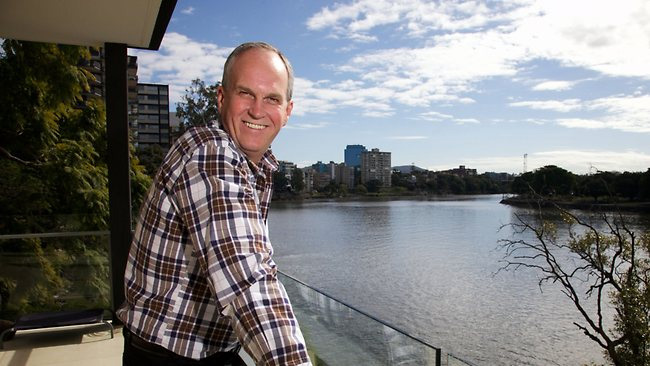



You never know what a gift solicitation will lead to.
By the early 2000s, Allan English had achieved a good deal of success with Silver Chef, a firm he founded in 1985. Around that time, he responded to a request for $10,000 from Opportunity International. He’d had no history with the charity, but its work struck a chord with him. Specifically, he was asked to support a micro-finance center in East Timor.
The idea for Silver Chef came from a trade show in the United States. The American home delivery pizza market was booming, and English saw the market’s potential in Australia. Soon after he invested heavily in conveyor ovens, however, he discovered that many small pizza operations couldn’t afford to buy them. So he decided to rent them out and, pretty soon, when the pizza store owners began generating revenue, they began to buy the ovens. Ten years later, Allan devised a funding option that enabled small businesses to procure the equipment they needed without committing large amounts of capital up-front. It’s called and trademarked as Rent-Try-Buy.
As a moderately wealthy man and as an occasional donor, he was looking around for ways to do something significant. “The idea of owning big boats and big houses didn’t do it for me," he says. When English saw a request from Opportunity International and their outlined cause, he recruited as many friends as he could to the cause. “And away we went,” he says. Then, about a month later, “I was catching a glass of red and I received a report from Opportunity International that explained the impact we were making. The forecast was that 40,000 lives were going to be changed over the next five years because of the project we were supporting.”
And that’s when it happened: “It just hit me like a rock. Forty thousand people—that’s a football stadium full of people. And there was no ego attached to this. It was absolutely pure impact. Imagine doing that every year. Wouldn’t that be fun?”
He decided it would be. “Now I had a purpose to go back to work and create wealth. So I hired someone to take over my volunteering stuff and I went back to work.” After he returned, the company grew 600 percent over the following six years. And in 2005 the company went public on the Australian Stock Exchange.
Then he set up his own family foundation. Endowed with $20 million in Silver Chef shares, the foundation distributes about $1 million annually. Forty percent is earmarked for poverty-alleviation programs overseas. “We have a very audacious goal to fund one million people out of poverty by the year 2020. So far we’re at 200,000 and we’re on our way.” Another 40 percent is distributed in Southeast Queensland and the remaining 20 percent is in a social innovation fund for, as English puts it, “young people with vibrant ideas.” He senses that he’s “not in a sexy space" by his own admission: "I don’t go for puppy dogs and kids’ charities—I tend to go for the things that are a bit tougher in our community, which probably sometimes get ignored.
“It’s my journey from success to significance," he adds. "From financial success in a business sense to having more significance in my life because of the work that we are doing.”